‘Dangerously beautiful’ Indonesia needs a plan to avoid pandemic trap, says epidemiologist
From ‘herd stupidity’ to ‘COVID rebound in Bali’, public health expert Pandu Riono assesses his country’s responses to the pandemic on CNA’s In Conversation.
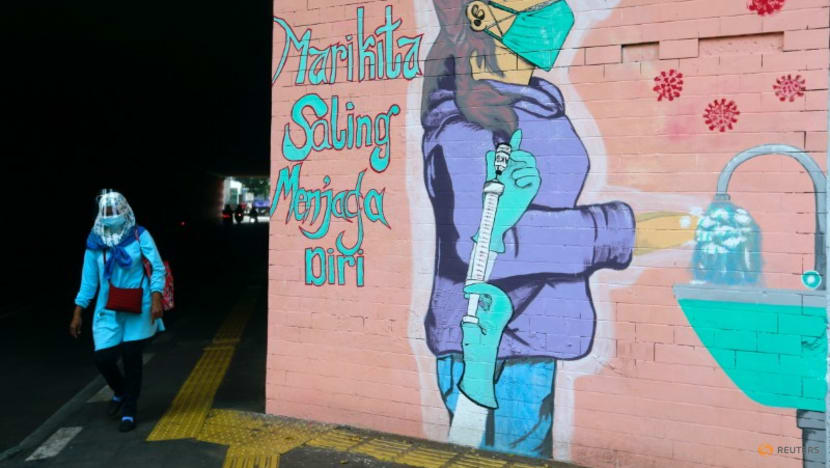
JAKARTA: Indonesia needs a systematic and targeted national plan to avoid falling into the “pandemic trap” where infections fluctuate, deaths remain high and hospitals remain overwhelmed by cases, says a prominent Indonesian epidemiologist.
Pandu Riono of the University of Indonesia, who has criticised his country’s COVID-19 measures, says the lack of success so far in suppressing infections stems from lost opportunities last year.
If Jakarta had been placed on a really strict lockdown that was actively enforced when the first cluster was found in early March last year, the virus “wouldn’t have spread to other cities in Java” or to other Indonesian islands, he argues on CNA’s In Conversation that aired this week.
The government must now plan what it should do and achieve in the coming year and the year after, he says. “Without planning, there’s no way we can control this pandemic.”

Indonesia’s government, however, says it already has a long-term strategy for getting out of the pandemic.
Speaking to CNA a fortnight ago, Co-ordinating Minister for Maritime Affairs and Investment Luhut Pandjaitan said Indonesia hopes to ramp up its vaccination drive to 2.5 million jabs a day by next month and eventually to five million doses daily.
Related stories:
It is trying to get things under control island by island, said Luhut, who is in charge of Indonesia’s pandemic response.
It is also working on a road map for living with COVID-19. People may have to still wear a mask and bring along their vaccination cards when they travel, he cited.
Pandu hopes this plan recognises that herd immunity may be hard to achieve.
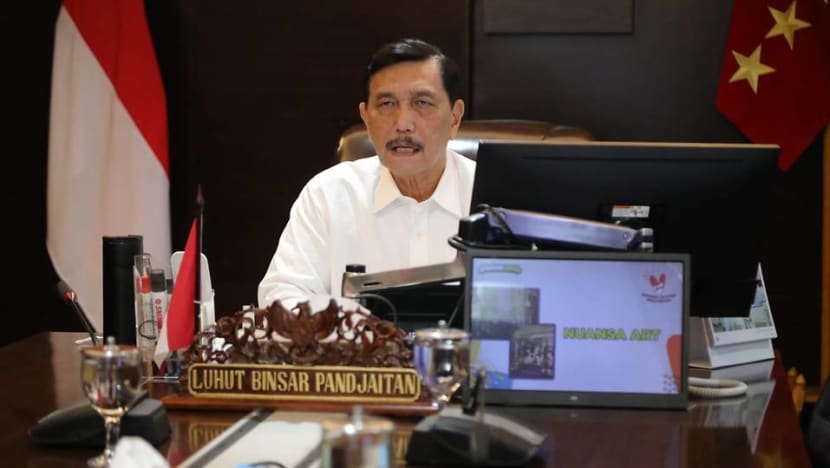
The public health expert was involved in a serology survey conducted in March by Jakarta’s health department and other partners, which found that 44.5 per cent of the capital’s 10.6 million people have had COVID-19.
The figure, released last month, was much higher than official numbers reported. Even so, he thinks herd immunity in Jakarta may be elusive as it sees many visitors from other parts of the country with lower vaccination or immunity levels.
“There’s no herd immunity in Indonesia for COVID-19,” he says. “Indonesia has a very large population of more than 270 million. With lower-efficacy vaccines like Sinovac, even if 100 per cent of the population gets vaccinated, we’ll never reach herd immunity.”
If Indonesia continues to manage COVID-19 “haphazardly”, there would be the constant fluctuation of infections “even until President Jokowi completes his second term”, he added.
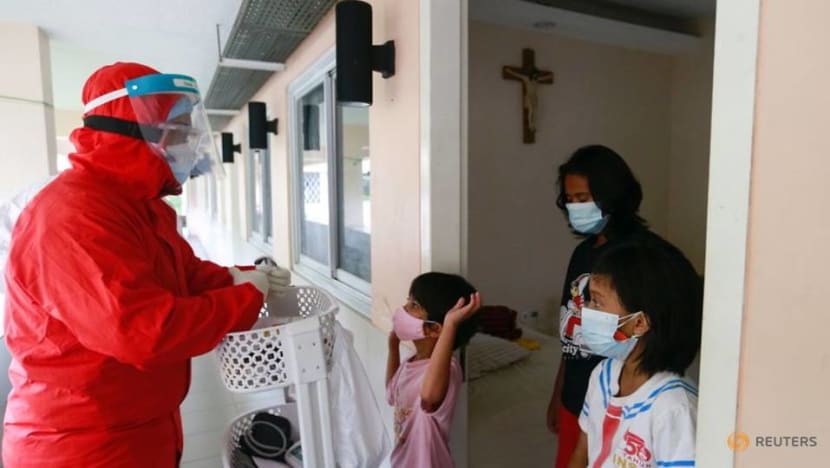
‘DON’T BE AFRAID OF INDONESIA’
Challenges in Indonesia include misinformation, inadequate vaccine supplies, measures that are difficult to follow and premature reopening of certain regions, says Pandu.
He feels Indonesia may not have enough supplies to administer two million doses a day this month, a target announced by the Jokowi administration. Then there are logistical challenges, for example ensuring that there are enough healthcare workers to carry out the vaccinations.
People should also receive accurate information on vaccines and side effects, he says.
“The issue that always comes up … is (that) there are side effects or experiences that make people afraid to be vaccinated. For example, some might suddenly fall ill or suddenly pass away, and the vaccine is often suspected to be the reason,” he cites.
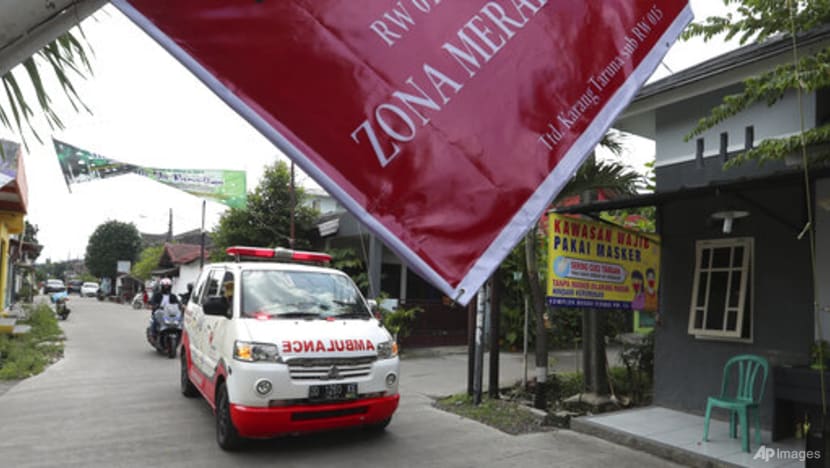
The government should have been stricter about misinformation about COVID-19 and should warn or prosecute those who spread the misinformation, he adds.
He also thinks the government should have controlled civilian movements better during the Hari Raya Puasa and Hari Raya Haji holidays
Previously he had used the term “herd stupidity” to refer to the exodus to hometowns as people skirted travel restrictions. While acknowledging that many may be “angry” with what he said, he maintains that they “can’t deny the reality”.
“People didn’t want to be restricted, and the government wasn’t seriously enforcing the restrictions, resulting in what I’d worried about, which was the spread of the Delta variant,” he says.
WATCH: ‘Herd stupidity’? Expert's take on Indonesia COVID-19 surge (22:43)
After Hari Raya Puasa, or Eid al-Fitr, on May 13, Indonesia’s daily reported COVID-19 cases shot up from fewer than 5,000 to over 50,000 by July. From Aug 1 to 11, new cases reported have ranged between 20,709 and 39,532.
Amid the surge, there was confusion over whether Indonesia’s Food and Drug Authority (BPOM) had authorised anti-parasitic drug ivermectin for emergency use against COVID-19. Following news reports claiming this, BPOM’s head said it was only undergoing clinical trials at eight hospitals.
Another thing that frustrates Pandu is that authorities are trying to reopen Bali “too soon”.
Indonesia launched the Work from Bali programme for civil servants in May in the hope of reviving the island’s tourism-reliant economy. But with COVID-19 cases having since increased, he says the “Bali rebound” is a “COVID rebound in Bali” instead.
In his recent CNA interview, Luhut the co-ordinating minister said cases in Bali could stabilise by year end. The island had vaccinated over 85 per cent of its people and would achieve around 90 per cent soon, he said.
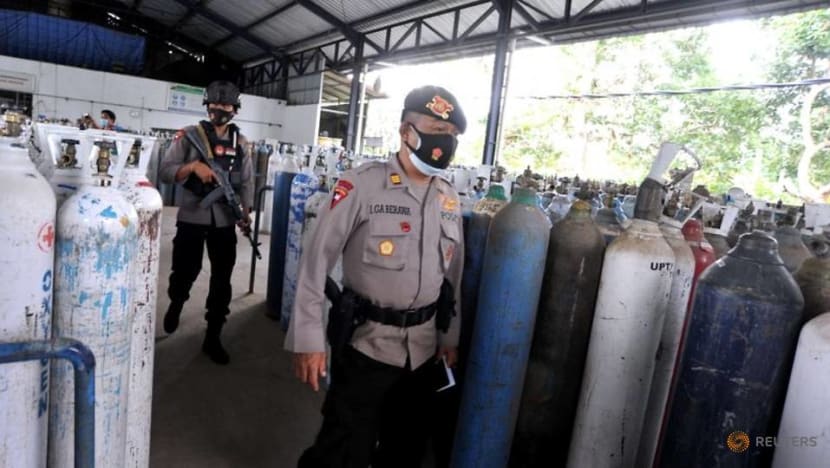
For all the COVID-19 struggles in Indonesia, Pandu urged its Southeast Asian neighbours not to isolate the country but to help one another.
“Help Indonesia so that we’ll be able to overcome this pandemic, so that we can get along again without having to feel suspicious or afraid,” he says.
“Indonesia is dangerously beautiful. It’s certainly dangerous, but it’s beautiful. Don’t be afraid of it.”
Watch the full exclusive interview with Dr Pandu Riono here. CNA’s In Conversation airs on Wednesdays at 9pm.

















